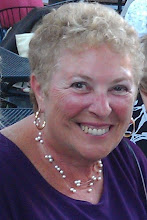Is Your Booklet Excellent or Perfect?
The conversation about excellence versus perfection
is far from new.Reading the following ezine reminded
me of the challenge I see many booklet authors
experience, from the writing, production, and marketing.
So here it is, one more time, for your consideration
in determining what works best for you.
==================
EXCELLENCE OR PERFECTIONISM?
By Lloyd J. Thomas, Ph.D.
Are you dedicated to excellence in your life? Are you
striving for perfection? The former will increase the
likelihood you will realize your envisioned future and
manifest your fondest dreams. The latter is to be
caught up in a particularly nasty habit that consumes
your creativity and increases your stress level.
There is an important and critical difference between
creating with excellence in mind and neurotically striving
to perform perfectly (perfectionism). To insist your vision
of success in any endeavor be implemented perfectly,
right now, in an imperfect world, is to be caught up in
perfectionism. To realize excellence in your life and seek
to create it is to design a lifestyle of enjoyment and
satisfaction.
Aristotle, the Greek philosopher (384-322 B.C.) is
credited with saying, "We are what we repeatedly
do. Excellence then, is not an act, but a habit."
To put that in more contemporary terms, "It is not
what you know, or even what you do that determines
your success in life. It is the content of your
character!" What you consistently do is based
on the excellence of your character, not on some
standard of perfection you set for yourself. You
probably already have all of the skills, talents,
abilities and contacts you need to be much more
successful than you are today. As a coach, one
of my jobs is to constantly remind my clients to
use their skills, talents, abilities and contacts
consistently and from the character quality of
excellence versus perfectionism.
Here are some important distinctions between
excellence and perfection: Excellence is a willingness
to be incorrect (imperfect) and take moderate risks
and learn from all mistakes; the perfectionist
needs to be "right" and fears risking failure and
rarely recognizes mistakes...even fortuitous ones.
Excellence accepts "what is" and thrives on the
process of change and of engaging in new activities,
whereas perfection judges (usually negatively) the
current situation, engages in ongoing criticism of
self and others and takes no joy in the process of
change and reluctantly or grudgingly engages in
any new activity.
Excellence increases personal power and confidence,
decreases stress levels and fuels a deep sense of
fulfillment and satisfaction. Perfection increases
frustration and anger/resentment and doubt,
increases stress and pressure and negates any
satisfaction (perfectionists are never satisfied).
Excellence releases all blame for outcomes, focuses
on "intention" and views the process of change
as a "journey." Perfection regularly blames self
or others for outcomes, focuses only on "results"
and views creating as a "destination."
Excellence does not depend on affirmation from
others, rather is self-affirming as life continues.
Perfection attributes success to "luck" and is
usually self-sabotaging. Excellence reflects
respect for all undertakings regardless of their
size, whereas perfectionists imagine some
future state of completeness only for large
undertakings.
Excellence acknowledges that "Now, at this
moment, I am good enough." Perfection only
believes that "Then, at some future date, I will be
good enough." Sadly, the perfectionist is "never
good enough," because s/he always falls short
of perfection.
Are you good enough? Are your actions
chosen from the criteria of excellence or
perfection? Is your personal character one
of human excellence or one of inadequacy
striving to be perfect? Are you excellent
or perfect? The choice is always yours.
+++++++++++++
Lloyd J. Thomas, Ph.D. has 30+ years experience
as a Life Coach and Licensed Psychologist.
He is available for coaching in any area presented
in "Practical Psychology." Initial coaching sessions
are free. Contact him: (970) 568-0173 or E-mail:
DrLloyd @ CreatingLeaders.com or LJTDAT @ aol.com.
Dr. Thomas is a licensed psychologist, author, speaker,
and life coach. He serves on the faculty of the
International University of Professional Studies. He
recently co-authored (with Patrick Williams) the book:
"Total Life Coaching: 50+ Life Lessons, Skills and
Techniques for Enhancing Your Practice...and Your
Life!" (W.W. Norton 2005) It is available at your local
bookstore or on Amazon.com.
============
Until next time,
Paulette - who gave up on perfection a long time ago
www.tipsbooklets.com
Labels: Marketing, Product Development, Writing



0 Comments:
Post a Comment
<< Home